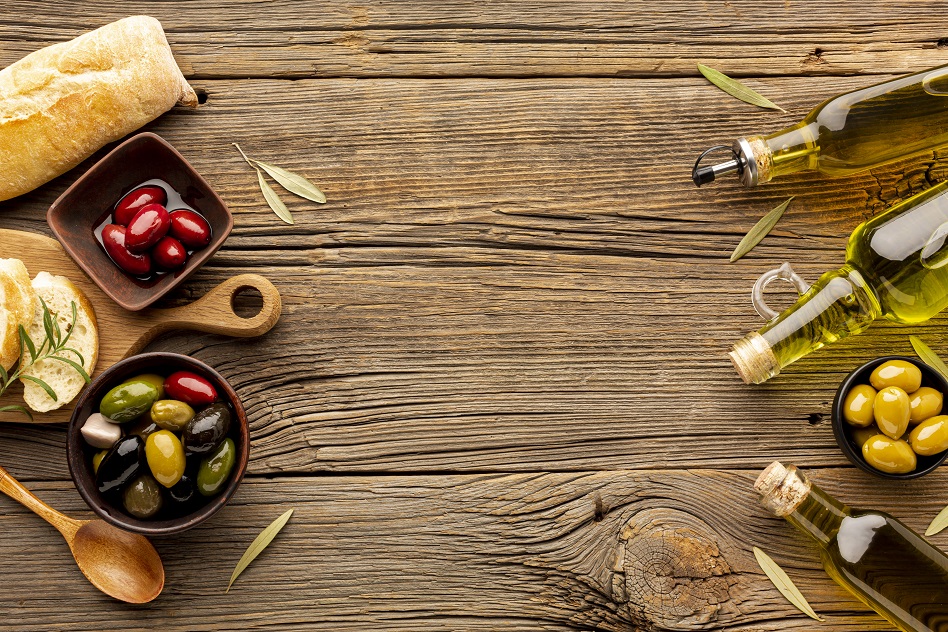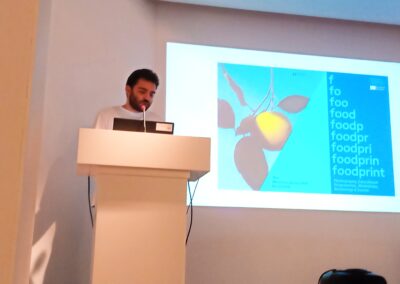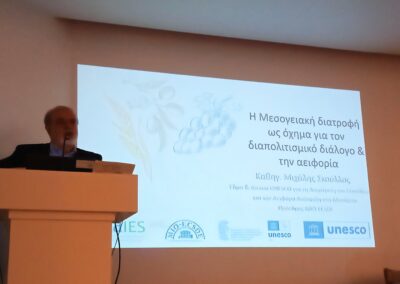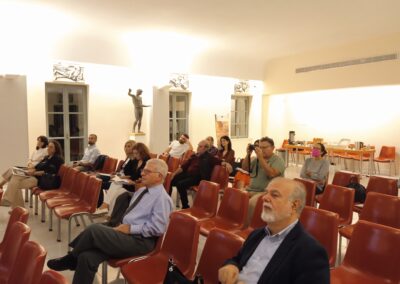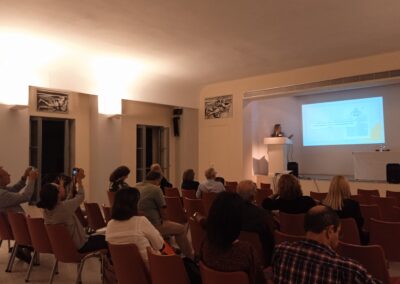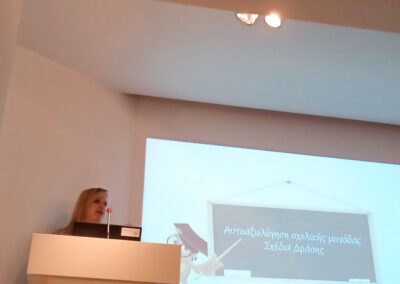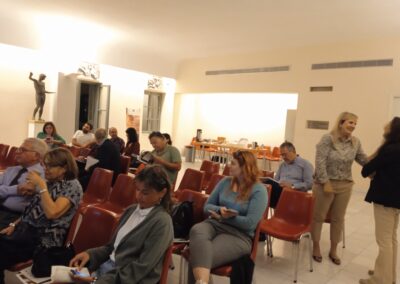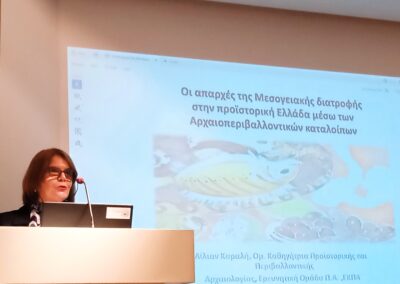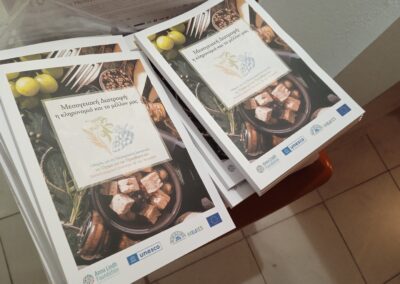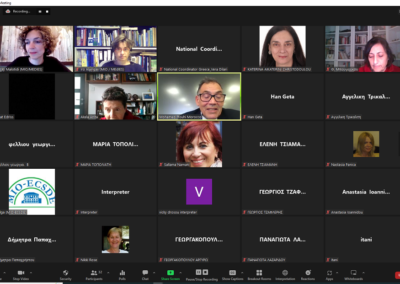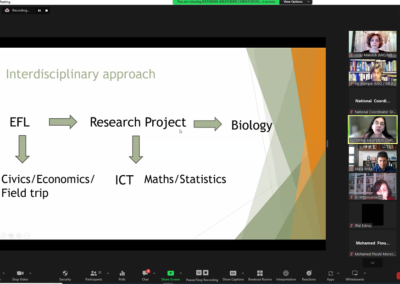Within the UNESCO Participation Programme (2022-2023) supported Project ” Mediterranean food: our legacy, our future” two awareness raising events took place aiming to demonstrate how Mediterranean food can be an effective “vehicle” to apply the principles of Education for Sustainable Development through examples of: Awareness raising campaigns, Educational actions and Programmes, youth trainings, etc.
We were happy to host an afternoon event on the 7th of November that brought together some 30 Greek participants, formal and non-formal educators, as well as citizens, in Athens downtonw. The event included four sessions covering the related aspects of the Mediterranean food products and diet:
- its envrionmental benefits and contribution to sustainable production and consumption patterns;
- its rich historical background in Greece and elsewhere in the Mediterranean region;
- its pedagogical potential to develop knowledge and competences related to sustainability/SDGs;
- its value in keeping the intercultural dialogue “alive” between and among generations, particularly in time periods when tensions are prevailling.
Last but not least, the Greek version of the Book produced in the context of the Project was presented and handed out to all participants.
Download the presentations (in Greek):
On the November 27th we organised an online training session to delve a bit more into the topics related to the content of the handbook “Mediterranean food: Our legacy, our future”. The Webinar included four panelists: Ms Katerina Christodoulou, UNESCO ASPnet School, UNESCO Individual Expert on ICH, Prof Mohamed Ftouhi, Emeritus University Professor, CMED President , Dr Sallama Namani, Environment / Development Program Manager, Makhzoumi Foundation, Ms Vicky Malotidi, Senior Education Programme Officer MIO-ECSDE/MEdIES while Ms Vera Dilari, National Coordinator UNESCO ASP-Net Schools opened the session with the warm welcome message.
The panelists highlighted how the Mediterranean food & diet related topics can scale up and boost intercultural dialogue as well as learning about sustainability and the SDGs. More particularly, they reflected on what makes the Mediterranean food & diet so important today, on the environmental “benefits” of Mediterranean diet, and of course, on its socio-cultural importance at local, national, regional level and in the ESD as well. The webinar was attended by 33 participants.
Find herewith the presentations:
Watch the video of the Webinar!
